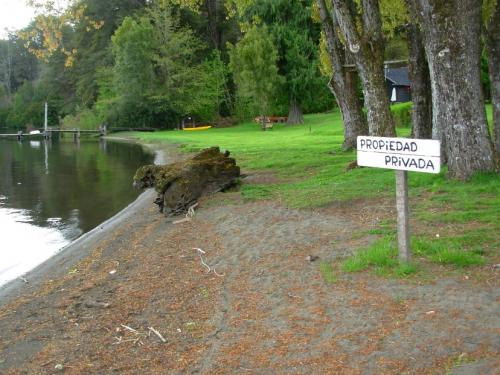Rivers as political subjects to decolonize life
The Piñera government is continuing with the mercantile treatment of common goods, putting several rivers of the Bio Bio Region up for auction.
- Análisis

Although it may seem unusual, in the midst of an ongoing process of destitution and constitution in Chile, following the social explosion that began on October 18, 2019, the authorities of that country have come up with nothing better than to continue with the mercantile treatment of common goods, putting several rivers of the Bio Bio Region up for auction, as is the case of the Queuco and Renaico rivers.
This practice of auctioning off rivers has been legally supported by the 1981 water code, which, by conceiving water as an economic asset, has made rivers mere objects for energy exploitation, where the State has handed them over to third parties through a resolution, which has allowed private parties to give a specific use to the water (non-consumptive rights), so that it is generally used for the hydropower business, with the condition that it has to be returned to its original course, in the same quantity and quality.
This has meant that, with the passage of time, multiple rivers in Chile have been appropriated, by foreign companies, which have controlled water rights from the Cuervo river (Xtrata of Switzerland), Rio Bravo (AES Gener of the United States), Palena river (AES Gener), Baker river (Endesa from Spain, now Enel from Italy), Blanco river (Xtrata), Chacabuco river (Xtrata), Pascua river (AES Gener), Figueroa river (Enel and AES Gener), Manso river (Endesa and AES Gener), Puelo river (Endesa), Cisnes river (AES Gener), Futalelfu river (Endesa), Maipo river (Aguas Andinas from Spain).
As can be seen above, apart from the privatization of the rivers in Chile, this process has been accompanied by a strong concentration of the country's energy matrix, where a few companies from the Global North control the existing market, which mainly seeks to sustain the energy demand of industry and mega-mining, which also generates deep socio-environmental impacts, through water pollution, the displacement of communities and the destruction of local economies.
In addition, those large companies that control the energy matrix implant narratives through the mainstream media, as is the case of the idea that for Chile to reach the goal of development, it needs more and more energy, without asking for whom it is directed, what should be the role of the State and much less thinking about the possibility for citizens to generate their own energy through energy communities via cooperatives.
However, the imposition of this neoliberal ideology at an extreme level, through the generation of a market for buying and selling rivers, is becoming increasingly tense and questioned by a strong politicization of the people in Chile, who are demanding rights of all kinds, as is the case with the idea of de-privatizing water and of its community management, within the framework of the Rights of Nature, as the Movement for Water and Territories proposes.
Hence, the different experiences in the world with respect to the idea of rivers being subjects of rights or being legally treated as persons, are highly valuable, showing that this is an ongoing process that will continue to expand to more and more countries. The cases of rivers declared as political subjects in countries such as Colombia (Atrato river, Quindio river), New Zealand (Wanganui river, Urewera river), India (Ganges river, Yamuna river) show us that it is no longer enough to protect rivers, within the humanist conception coming from Environmental Rights, but to give real voice and political representation to non-human beings.
Consequently, understanding rivers as political subjects and giving them legal recognition, opens up the possibility not only of overcoming instrumental and mercantile conceptions of life, where Chile is perhaps the worst case of all, but also of decolonizing an anthropocentric and westernized view of the planet, which has us in the midst of a climate emergency at a global level. For this reason, the mountains, soils, forests, and seas should also be recognized, as they have the capacity for agency and are a fundamental part of ecoterritorial dynamics.
(Translation ALAI).
- Andrés Kogan Valderrama
Sociologist
Diploma in Education for Sustainable Development
Master in Communication and Contemporary Culture
PhD student in Latin American Social Studies
Editor of the Observatorio Plurinacional de Aguas www.oplas.org
Del mismo autor
- Derechos de la Naturaleza y posdesarrollo en Chile 31/03/2022
- El CEP y su temor a una constitución decolonial en Chile 16/03/2022
- ¿La Naturaleza seguirá estando muda en la nueva constitución de Chile? 11/03/2022
- El comienzo del fin del Estado portaliano en Chile 18/02/2022
- Hacia una integración regional desde el buen vivir 21/01/2022
- Restauração conservadora em tempos de constituinte? 30/11/2021
- La caída de Sebastián Piñera como momento estelar de Chile 12/11/2021
- Gabriel Boric y el fin de la transición en Chile 29/10/2021
- José Antonio Kast y la República Negacionista de Chile 15/10/2021
- ¿Semipresidencialismo para desconcentrar y ciudadanizar el poder? 12/10/2021
